- Home
- Troy Denning
The Parched sea h-1 Page 8
The Parched sea h-1 Read online
Page 8
"Now fetch Zarud, boy," the sheikh said. "The sooner we tell him what we have decided, the sooner we will be free again."
A moment later, the servant left the khreima and started for the far side of camp. Hoping to tell her father about Lander before the boy returned with the Zhentarim, Ruha entered the tent.
In the dim light cast by the flickering butter lamps, she saw that her father sat in his usual place at the head of the tent. To his left sat the five elders of the tribe, and across from them were seated Al'Aif, Nata, and four more warriors. As Ruha approached her father, they all turned toward her with disapproving frowns. In the Mtair Dhafir, decision-making was men's business and women were not welcome at the councils.
Ruha ignored their stern gazes and looked directly to her father. "I have heard your decision. Before-"
"Our decision does not concern you, witch," interrupted Nata.
Ruha turned her stare on the burly warrior. Speaking in a calm, even voice, she said, "That is just as well, Nata. I would rather live a shunned life than share slave bonds with you."
The warrior's face darkened with anger, and he tried to stammer a reply, but Ruha turned back to her father before he could spout any words.
"Father, before you commit your tribe to this course of action, there is something I would like to show you."
The old man furrowed his brow. "Then show me quickly."
Ruha glanced at the curious eyes to either side of her. She still felt that revealing Lander's presence in front of all these men would be the same as telling Zarud herself. "It is for your eyes alone."
Angry mutters and grunts rustled throughout the tent. Her fattier looked from the warriors to the elders, then said, "Did you not tell me everything you knew earlier today?"
Ruha nodded. "There is something else."
"If it is important, then you can tell me here," the sheikh said. "Otherwise, it will have to wait."
"Then it will wait" Ruha sighed.
As she turned to depart, the servant boy returned with Zarud, Kadumi following on their heels.
"If it pleases you, Sheikh, I would like to hear what you have decided," Kadumi announced, pausing at the tent entrance.
Sighing, the sheikh waved the boy into the tent. "You deserve to know."
Glancing grimly at her brother-in-law, Ruha started to step past him and Zarud. As she passed, the Zhentarim caught her by the arm and shook his head, then said something in a language she did not understand and motioned for her to stay.
Ruha looked to her father, and he nodded.
Zarud took the widow's sleeve, then gently tugged her along as he stepped into the center of the semi-circle of the sheikh's council. When he stopped, both the warriors and elders frowned at his presumption in touching a Bedine woman. Ruha pulled free of his grasp.
Paying no attention to either the widow or the advisors, the Zhentarim asked a question. No one spoke his language, but there was no need to understand his words to know he requested the Mtair Dhafir's decision about the treaty. In the eyes of every Bedine present, however, there was an unspoken question: why had he wanted a woman, especially Ruha, to stay?
The sheikh glanced at his daughter, then looked back to Zarud, carefully masking whatever curiosity he felt behind a blank face. "The Mtair Dhafir accept your treaty," he said, nodding his head.
Wry grins crossed the lips of several elders and warriors. The sheikh had sworn no loyalty and pledged no friendship. In Bedine terms, at least, Sabkhat had not bound them to any alliance.
Smiling, Zarud inclined his head to the sheikh, then to the elders and the warriors. He spoke some more words that no one understood. The men of the Mtair looked from one to another with querying eyebrows and blank eyes.
Zarud spoke again, this time grasping Ruha's wrist and pointing toward the Bitter Well, where the Zhentarim were camped. He put his hand in front of his mouth and made speaking motions, then did the same for the widow.
"He wants to take her to teach them our language," concluded an elder.
Ruha jerked her wrist free. "Never!"
The Zhentarim grabbed her arm again, nodding and speaking sharply. He pointed to two elders, then to Al'Aif and Nata, and then toward the Bitter Well again.
"Why does he need with so many teachers?" demanded Nata. "This isn't right!"
Kadumi stepped toward Zarud, his hand drifting toward the hilt of his jambiya. He stopped when Al'Aif rose and motioned for him to stop. The scarred Mtair turned toward Ruha's father. "Already the Zhentarim tighten their reins, Sheikh. Is it still your wish to placate them?"
The sheikh locked gazes with Zarud, giving no sign that he had heard Al'Aif's question. Finally, without looking away from the Zhentarim, he said, "It is the only way, Al'Aif. You will all be ready to leave at dawn."
Kadumi stepped forward again. "No," he yelled. "Ruha is the wife of my brother. I cannot allow this!"
Al'Aif intercepted the young warrior. "The sheikh has decided, Kadumi," he said, pushing the boy toward the exit. "Don't worry about Ruha. I'll protect her."
After Al'Aif and the boy had gone, the sheikh looked at Nata and the two elders Zarud had selected, then rested his gaze on his daughter. "I'm sorry that it has to be this way," he said. "We must think of the welfare of the whole khowwan."
"You must think of the tribe," Ruha retorted, turning to leave the tent. "I have not been bound to do so since I was five summers old, when you banished me from the Mtair Dhafir."
Six
When Ruha returned to her tent, Lander was gone. He had taken the waterskin she had left for him, abandoning the feather-less arrow and two empty glass vials in its place. Nothing else was missing, and there was no sign of a struggle, so Ruha assumed the stranger had left of his own will.
The young widow could not understand how he had managed to leave under his own power, though she could certainly understand why he would want to leave. With the Zhentarim in camp, almost any place would be a safer haven than a Mtairi tent.
It is best that the berrani is gone, Ruha decided. It would be difficult enough to sneak out of camp tonight without taking an injured stranger along-or feeling guilty about leaving him behind. The young widow took a kuerabiche and stuffed her possessions into the carpet shoulder bag. There was not much to pack: a ground loom, Ajaman's jambiya, an extra aba, and three veils. She did not pack her heavy cloak, for she would need it later.
Ruha did not even consider becoming a Zhentarim captive on behalf of the Mtair Dhafir. Even if the sheikh rescued the hostages, she would never be welcome in the tribe. Besides, she knew her father well enough to doubt that he would even attempt such a rescue. Sheikh Sabkhat always thought of the welfare of the khowwan first, and trying to save the five prisoners would make the tribe's escape from the Zhentarim that much more difficult.
Still, the elders might force the old sheikh to try such a feat, for the Zhentarim had chosen their hostages well. The two elders were the heads of large families that would certainly never abandon their patriarchs. Al'Aif and Nata, the tribe's two best warriors, would also be sorely missed. Their absence would make the Mtair more reluctant to take up arms, and deprive the tribe of combat leadership if a revolt did occur.
Ruha felt that she was the only badly chosen hostage; the Mtair Dhafir would just as soon be rid of her anyway. The young widow could see why the Zhentarim had made their mistake, however. As the sheikh's daughter, the tribe leaders would normally hesitate to do anything to put her in danger. Ruha suspected there was more to the choice than that, however.
The pale, purple-robed man accompanying Zarud originally had struck her as being the real leader of the pair, and he had also used some sort of magic. From the way he had studied her during their original meeting, it would not surprise Ruha to learn that he had somehow sensed that she was a sorceress. No doubt, being magic-wielders themselves, the Zhentarim had concluded it would be better to have her where they could watch her.
When she finished packing, Ruha sat down to study th
e spells she had sewn inside her aba. She was certain she would need the wind shadow and sand whisper spells, and she also thought that a sand lion would be useful if she ran into any Zhentarim tonight. She did not know whether to memorize any sun spells, however, for it was difficult to decide what needs the light of day might bring with it.
Ruha was still contemplating her choice when someone cleared his throat noisily outside her khreima. The widow quickly rearranged her aba, then called, "Is there someone at my door?"
"Kadumi," came the response.
Before inviting the youth inside, Ruha thought about unpacking her bag, then decided that she could always claim it had been packed with tomorrow morning in mind. "Come inside, Kadumi."
The boy stepped inside, then sat very close to Ruha's side. "One of Nata's sons sits in the shadows twenty yards from your tent," he whispered.
Ruha nodded. "That does not surprise me. My father knows I have no wish to be a hostage."
"He is wrong to ask you," Kadumi said. "You are of the Qahtan now, not the Mtair Dhafir."
"Yes."
The boy nodded at the kuerabiche. "That is why you are leaving."
Ruha thought to deny it, then she realized that if Kadumi had not come as her friend, he would not have told her about the warrior watching her tent. "The Mtair have no right to ask anything of me."
"If it comes to you escaping this night, I will go with you."
"No. You should stay with my father's tribe." Ruha put a hand on the boy's arm. "We are a long way from your home sands, and it will be hard to find another of the Qahtan's allies for you to join."
Kadumi shrugged. "That doesn't matter. If you go, I must go as well. Yet that may not be necessary. Al'Aif thinks your father will change his mind."
Ruha frowned skeptically. "Al'Aif should know my father better than that."
"He seemed very sure of himself, and he thought you should know."
"Why?"
The boy shook his head. "He didn't say, but he is a man who can be trusted. Just wait until tomorrow. If your father has not changed his mind, then I will get you before you reach the Zhentarim."
The youth returned to his feet, saying, "I should leave before the guard thinks I am taking liberties with my brother's wife."
Beneath her veil, Ruha smiled at the boy's swagger. "We wouldn't want that."
"Until tomorrow, then," he said as he left.
Without unpacking her kuerabiche, Ruha returned to studying her spells. Whatever Al'Aif was doing, she didn't see how it affected her decision. Since her return, the warrior had treated her with a certain amount of respect, but she doubted that he or anyone else had changed their views on having a witch in the tribe.
Ruha continued studying her spells until an uncanny quiet crept over the camp and the night chill wafted into her tent on silent puffs of wind. Judging the time to be prime for sneaking away, Ruha went to the door of her khreima and peered outside. The moon cast a weak silvery light over the camp, but there were plenty of murky shadows to hide in beneath the ghaf trees and behind the tents. The sentry Kadumi had mentioned was nowhere in sight, but Ruha did not doubt that he was wrapped in a dark cloak and lying beneath one of the bushes or trees she watched.
Ruha backed away from the exit, then took her kuerabiche and went to the back side of the tent. She lifted a wall and pushed the bag outside, then started to squirm out herself.
A pair of dogs started barking on the far side of camp. Cursing the beasts, Ruha left the bag outside and crawled back into the tent. The dogs would awaken every other animal in camp, which would make it much more difficult for her to take a camel without causing a general tumult. Even with the animals alert, the widow could use her magic to move about undetected. Unfortunately, any camel she tried to take would be startled by her silent appearance from the shadows and bellow an alarm. It would be better to wait for the dogs to quiet down, then try again.
The dogs did not quiet. More joined the chorus, and then the camels began to bray. Soon the voices of sleepy men joined the uproar. Vexed by her bad luck, Ruha wrapped her cloak around her shoulders and waited for the men to put to rest whatever problem it was that had awakened the whole camp. When the tumult only grew worse, Ruha went outside to see the cause.
The first thing she saw was a stern-faced Nata striding purposefully toward her khreima. Behind him, in the center of the camp, her father and two dozen warriors stood gathered in a circle. They were all shouting at each other in puzzled, shocked voices.
As Nata approached, he said, "You'd better come with me, witch."
Ruha frowned in concern. "What's wrong? Is Kadumi hurt?"
The burly warrior shook his head, but before he could answer, a youthful warrior appeared from the other side of her tent. He was carrying the kuerabiche Ruha had packed earlier that night. "I found this behind the witch's tent, Father."
Nata took the shoulder bag from his son, then threw it back inside her khreima. "You won't be going anywhere tonight, Ruha. Come with me."
Frowning in confusion, Ruha followed the burly warrior back to the camp. Nata pushed through the jabbering men and moon-eyed children, keeping the widow close behind him. When they stopped moving, what Ruha saw made her gasp.
Al'Aif and her father stood in center of the crowd, holding torches. Al'Aif was watching her, but her father was staring at the lifeless and naked body of Zarud. The Zhentarim agent lay spread-eagled on the ground, as if someone had carried his corpse to the center of the camp and dropped him there to be inspected. The dead man had the sinewy build of a warrior, and his torso was blanketed with old scars. Ruha could scarcely believe a man could be wounded so many times and survive.
The most noticeable thing about the Zhentarim was the gaping gash below his jawline. Somebody had slit his throat from ear to ear, apparently with great relish. The wound was both deep and unnecessarily lengthy, and had left his body covered with blood from the shoulders to the hips. Ruha thought immediately of Lander, for he was clearly an enemy of the Black Robes.
She rejected the idea as quickly as it came to her. The last time she had seen the stranger, he had barely been able to walk, much less slit a healthy man's throat. She thought of Al'Aif next, wondering if he had believed murdering Zarud would convince the sheikh to change his mind about sending hostages to the Zhentarim.
Her thoughts were interrupted by a woman's curious voice. "How come he's not dressed?"
The Bedine removed their clothes for only one purpose. Since the Zhentarim had not brought any wives with him, his nakedness seemed peculiar to the tribesmen.
"Perhaps Ruha knows," suggested an aged warrior with a mouthful of rotten teeth. "What better way to catch a man off-guard?"
A flutter of murmurs rippled through the crowd.
"I can think of a dozen," she retorted, glaring at the old man. "Any one of which I might use to silence your lecherous tongue."
The crowd snickered openly at the widow's retort, and the old man flushed with embarrassment. He rudely brushed his nose at Ruha, then pushed his way out of the assembly.
As the man left, Al'Aif spoke. "If Ruha did this, she has performed us a great service."
Considering that she suspected Al'Aif of being the murderer, the accusation both astonished and angered Ruha. She stopped short of accusing the scarred warrior openly, however, for she knew it would work against her. Given a choice of believing her or Al'Aif, the crowd would place its faith in the warrior.
Nata spoke next. "When we went to fetch Ruha, my son found a packed kuerabiche behind her tent."
A wave of speculation rolled through the crowd. The widow realized that, aside from herself, the only one who did not believe she had killed Zarud was the real murderer.
The sheikh shifted his gaze to Ruha and stared at her in dismay for several seconds. Finally he said, "Do you know what you have done, Daughter?"
"She has saved us," Al'Aif interrupted. "Now there is no question of placating the Zhentarim. We must fight."
The sheikh whirled on Al'Aif. "We're out-manned thirty-to-one, you idiot!" he snarled. He looked back to Ruha, his ancient eyes welling with tears. "Our only hope is pay the blood price and hope the Zhentarim will accept it."
The pronouncement struck Ruha like a club. Her knees buckled, then she felt Nata's big hands beneath her arms. The burly warrior held her up while she spoke. "Father, you mustn't do this," she gasped. "I didn't murder your guest."
The old man dropped his gaze back to the corpse. "If you didn't kill the Zhentarim, who did?"
Ruha looked in Al'Aif's direction, but before she could speak, Kadumi stepped forward and threw his jambiya at the sheikh's feet. "There is the weapon that cut Zarud's throat," he declared.
"Kadumi's lying," Ruha said, pulling free of Nata's supporting hands. "He's just trying to protect me. The Zhentarim's blood is on neither of our jambiyas."
The old man picked up the youth's dagger. "The boy has admitted the crime. You were caught about to sneak from camp. What can you say to make me believe that one of you did not do this?"
It was Al'Aif who answered. "I say it doesn't matter who killed Zarud, because we owe the Zhentarim no blood price. They are our enemies, not our allies!"
"If you were sheikh, Al'Aif, we would be dead in two days," Ruha's father retorted. "Fighting is not always the best solution."
"Is paying the blood price with the life of your daughter or an innocent boy a braver solution?" demanded Al'Aif.
"What are you saying?" yelled the sheikh. When Al'Aif did not respond, the old man shoved the warrior, knocking him back into the crowd. "Do you call me a coward?"
As he regained his balance, the scarred Mtairi grabbed for his jambiya. In the same instant, Nata flashed past Ruha to stand before the sheikh, his hand on the hilt of his own weapon. As the two warriors glared at each other, the crowd backed away in tense silence, scarcely daring to breath lest they touch off a fight that would not stop short of death.

 Shadows of Reach: A Master Chief Story
Shadows of Reach: A Master Chief Story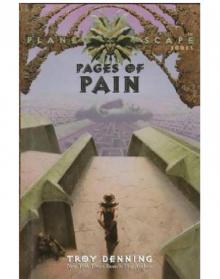 Pages of Pain p-1
Pages of Pain p-1 Star Wars 396 - The Dark Nest Trilogy III - The Swarm War
Star Wars 396 - The Dark Nest Trilogy III - The Swarm War Star Wars: Fate of the Jedi: Apocalypse
Star Wars: Fate of the Jedi: Apocalypse A Forest Apart
A Forest Apart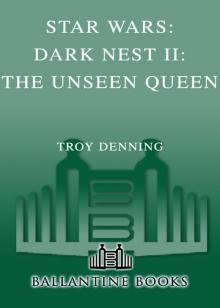 Star Wars: Dark Nest II: The Unseen Queen
Star Wars: Dark Nest II: The Unseen Queen Star Wars: A Forest Apart
Star Wars: A Forest Apart Tempest: Star Wars (Legacy of the Force) (Star Wars: Legacy of the Force)
Tempest: Star Wars (Legacy of the Force) (Star Wars: Legacy of the Force) Star by Star
Star by Star Crucible: Star Wars
Crucible: Star Wars Last Light
Last Light Invincible
Invincible Inferno
Inferno Star Wars - The Trouble With Squibs
Star Wars - The Trouble With Squibs Abyss
Abyss The Verdent Passage
The Verdent Passage Vortex: Star Wars (Fate of the Jedi) (Star Wars: Fate of the Jedi)
Vortex: Star Wars (Fate of the Jedi) (Star Wars: Fate of the Jedi)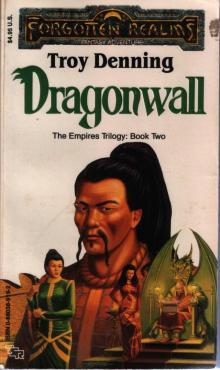 Dragonwall e-2
Dragonwall e-2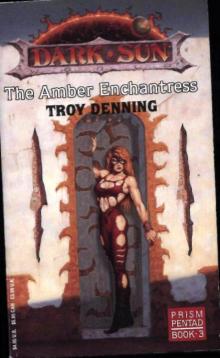 The Amber Enchantress
The Amber Enchantress Crucible
Crucible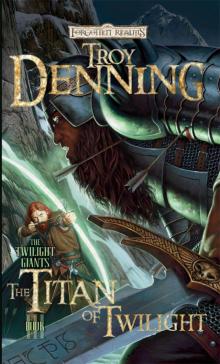 The Titan of Twilight
The Titan of Twilight Dragonwall
Dragonwall Beyond the High Road c-2
Beyond the High Road c-2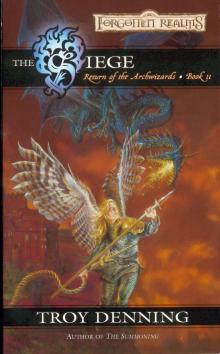 The Siege rota-2
The Siege rota-2 Silent Storm: A Master Chief Story
Silent Storm: A Master Chief Story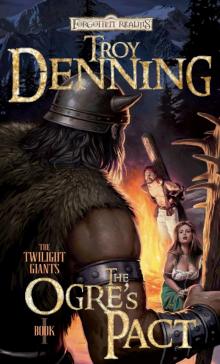 The Ogre's Pact
The Ogre's Pact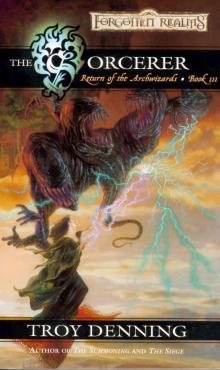 The Sorcerer rota-3
The Sorcerer rota-3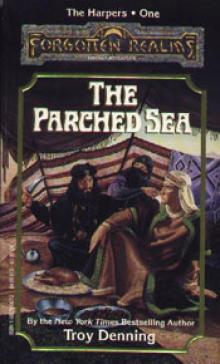 The Parched sea h-1
The Parched sea h-1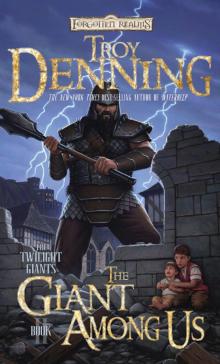 The Giant Among Us
The Giant Among Us Recovery
Recovery Star Wars: Dark Nest 1: The Joiner King
Star Wars: Dark Nest 1: The Joiner King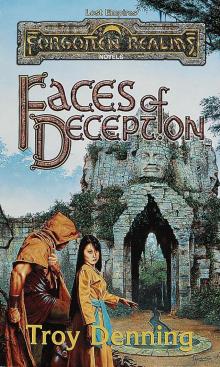 Faces of Deception le-2
Faces of Deception le-2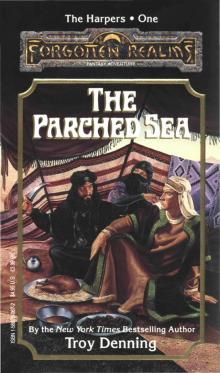 The Parched Sea
The Parched Sea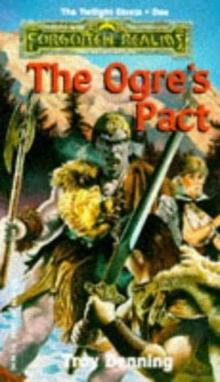 The Ogre's Pact зк-1
The Ogre's Pact зк-1 Apocalypse
Apocalypse Star Wars®: Dark Nest I: The Joiner King
Star Wars®: Dark Nest I: The Joiner King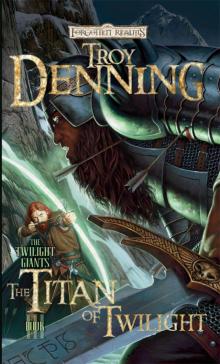 The Titan of Twilight ttg-3
The Titan of Twilight ttg-3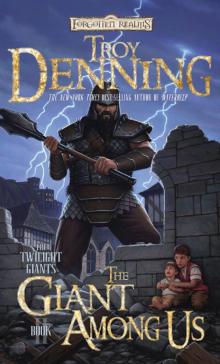 The Giant Among Us ttg-2
The Giant Among Us ttg-2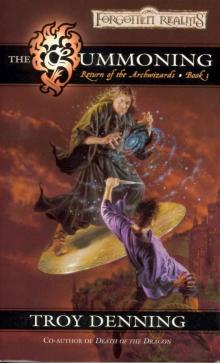 The Summoning rota-1
The Summoning rota-1 Tatooine Ghost
Tatooine Ghost Star Wars®: Dark Nest III: The Swarm War
Star Wars®: Dark Nest III: The Swarm War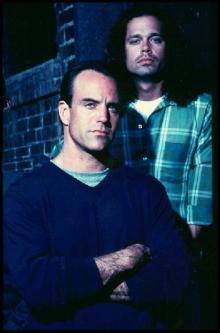 Retribution
Retribution A Forest Apart: Star Wars (Short Story)
A Forest Apart: Star Wars (Short Story)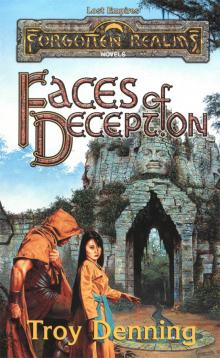 Faces of Deception
Faces of Deception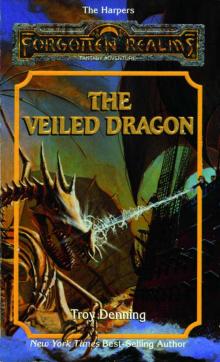 The Veiled Dragon h-12
The Veiled Dragon h-12 Star Wars 390 - The Dark Nest Trilogy I - The Joiner King
Star Wars 390 - The Dark Nest Trilogy I - The Joiner King Waterdeep
Waterdeep STAR WARS: NEW JEDI ORDER: RECOVERY
STAR WARS: NEW JEDI ORDER: RECOVERY